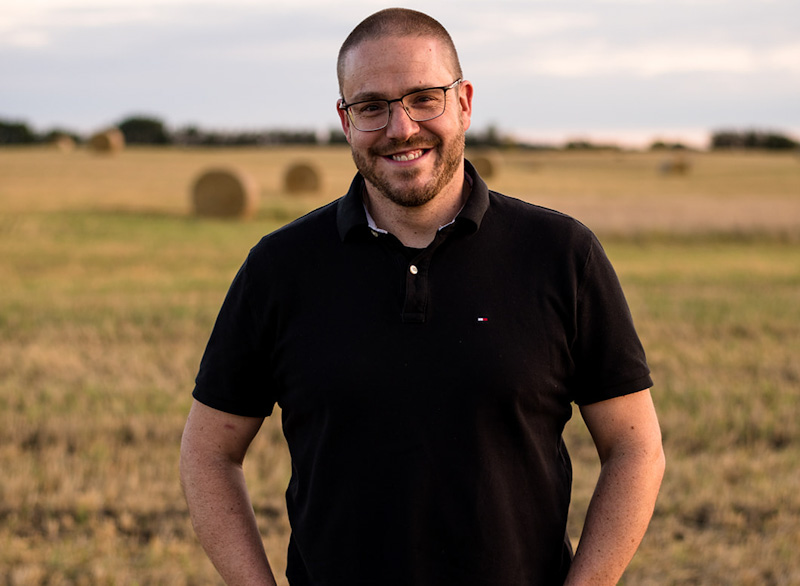I’m afraid of the dark. I have been for as long as I can remember. When I played in my (unfinished) basement as a kid, I always liked having the lights on across the basement so I could brighten every dark corner. When I worked at summer camp, I kept a small pocket-sized flashlight in my pocket. During the 10 years I worked in churches, my least favorite thing to do was to lock up the (dark) church building at the end of the night… my imagination always had ideas of who or what might be lurking in the sprawling darkness.
Several years ago, I was preparing a talk on faith and fear when I found 77 different Biblical passages stating: “Be not afraid,” “Do not be afraid,” and “Do not fear.” These words are spoken by prophets, angels, and our Lord Himself. St. John Paul II used these words in his first homily as Pope in October 1978 and he repeated them often throughout his papacy. I’m not convinced that he was telling me not to be afraid of what might be lurking in the dark; there are much deeper fears we all face.
Pope Benedict XVI identified some of these:
“We (pastors) hear talk of the fears of today’s youth. These fears reveal an enormous lack of hope: a fear of death, at the very moment when life is blossoming and the young are searching to find how to fulfil their potential; fear of failure, through not having discovered the meaning of life; fear of remaining detached in the face of a disconcerting acceleration of events and communications.”
It make sense that these fears are what Biblical and papal “Be not afraid” statements are addressing. That’s because it is those moments that we allow these big fears to guide our decision making we often make our worst choices – and we do the sorts of things we bring to the Sacrament of Reconciliation. To hear or read the words “Be not afraid” is a challenge to find the courage to stand up to our fears of being alone, of failing, and of dying. At the same time simply hearing the words “Be not afraid” doesn’t make it so. In those moments, not only are we still scared … we’re apt to continue to make those poor decisions.
The first letter of St. John offers us concrete help. It is there that we read that “perfect love casts out fear” (1 John 4:8). If we hear the words “Be not afraid” as a simple cliché, the sort of thing you just put on a t-shirt or a bumper sticker, we’ve missed a foundational aspect of our faith: knowing that we are, always have been, and always will be loved by the God who created the universe.
A great example of someone who was able face these deeper fears while standing on the foundation of God’s love can be found at the Annunciation. It is there that the angel Gabriel appears to our Blessed Mother and says: “Do not be afraid, Mary, for you have found favor with God.” It’s possible Mary felt some or all the deeper fears Pope Benedict identified. Who was this child to be? How would she live up to what God was asking of her? How would Joseph respond (and if Joseph left, what would become of her?) Despite all these very real reasons to be afraid, she placed herself in God’s hands, and firmly trusted He would carry her through. This was the fruit of her own faith and relationship with God. She trusted Him because she knew Him. And so she replied: “Behold, I am the handmaid of the Lord; let it be to me according to your word” (Luke 1:37).
In his message for World Youth Day 2018, Pope Francis explained the immense meaning behind these words: “The first reason not to fear is the fact that God has called us by name.” Later, the Pope said that “our life is not pure chance or a mere struggle for survival, rather each of us is a cherished story loved by God.”
Behind every be not afraid, do not be afraid, and do not fear, we ought to remember that God knows each of us by name, that He cherishes our stories, and that He loves us anyway. It has always been God’s love that casts out all deeper fears, but it is we who struggle to know and believe in it.
On this day and in this moment in our lives, we may lack the faith and courage to do what Mary did. But it is precisely for this reason that we need the life of faith. In prayer, we open our hearts to the heart of God. In scripture, we hear His voice and words speaking to us. In the Eucharist, He gives Himself to us completely and in return, asks us to do the same. As we do these things (and all the other practices of our faith), we learn to do what Mary did: to let God’s perfect love transform us, cast out all our fears, and help us to make a more complete gift of ourselves and our lives to Him.
“Don’t ever think then that you are unknown to him, as if you were just a number in an anonymous crowd. Each one of you is precious to Christ, he knows you personally, he loves you tenderly, even when you are not aware of it.”
-Pope St. John Paul II, World Youth Day 2000
— Mike Landry is chaplain to Evergreen Catholic Schools west of Edmonton, and serves as an occasional guest speaker and music minister in communities across Western Canada. Mike and his wife Jennifer live in Stony Plain, Alta. with their five children.

